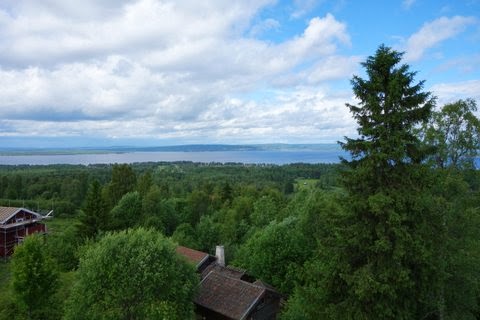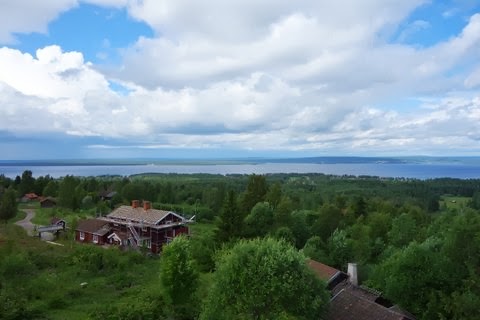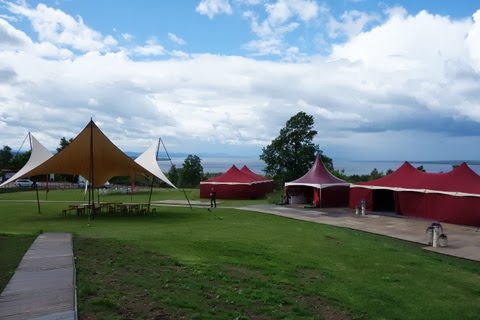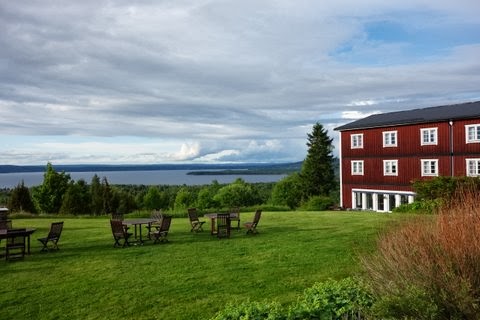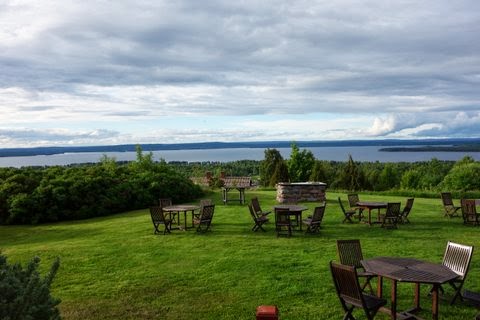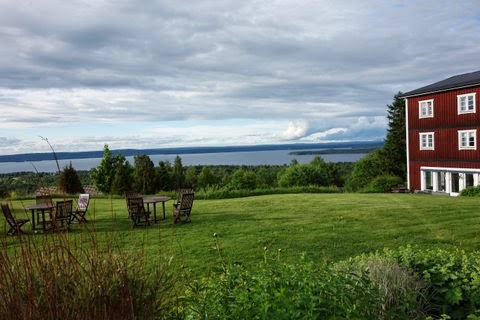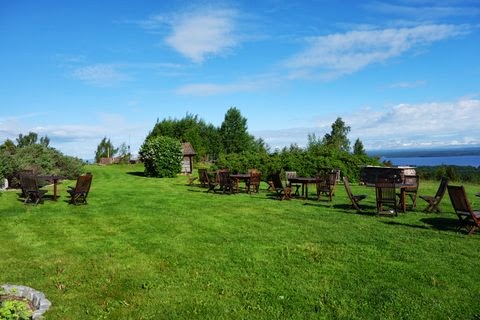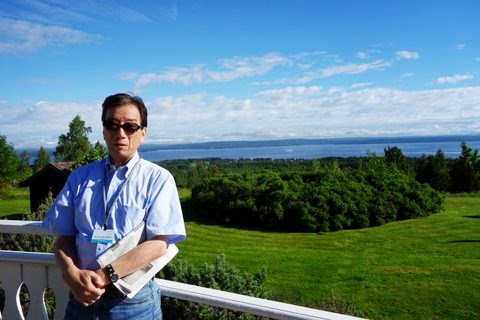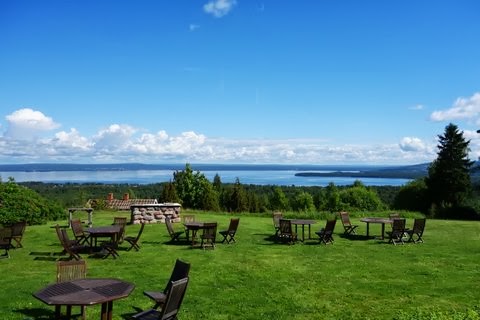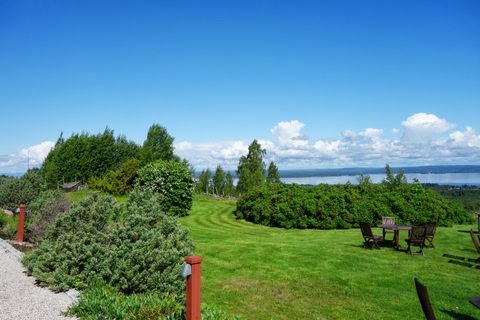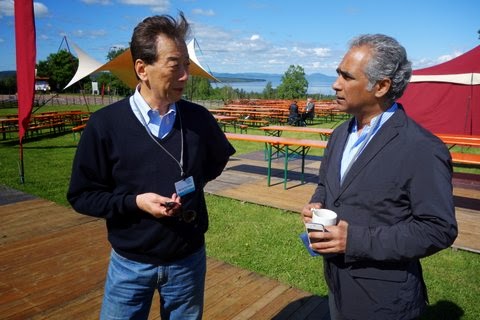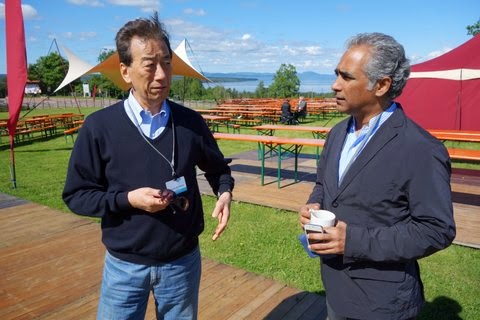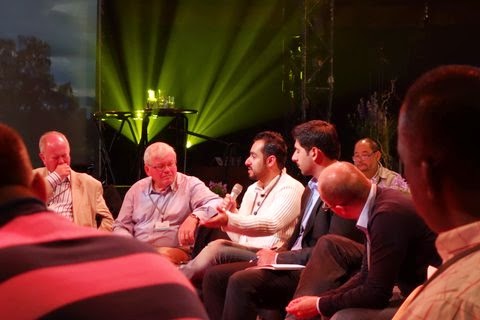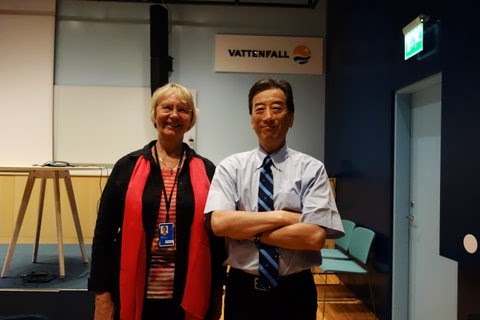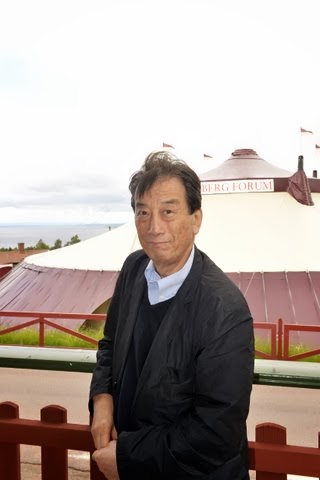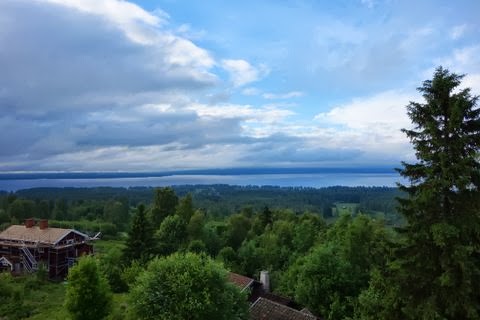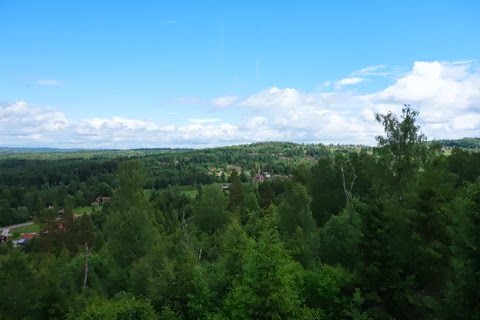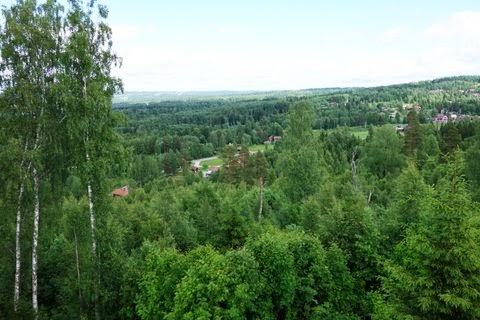→Japanese
On the morning of the 12th of June, I left Narita for Stockholm, passing through Copenhagen. I had been invited to attend the opening session of the Tallberg Forum.
I was to spend the morning in Stockholm at the headquarters of Vattenfall(1), the largest public sector energy company in Sweden. There, I would be talking to the directors of the company, as well as giving a talk about the NAIIC to the employees. Of course, I happily obliged.
Afterwards, I was interviewed by the Swedish national public broadcaster, and it was aired on the news(*1). Incidentally, my interviewer had been in Japan for 3 years 20 years ago, and had been working at NHK.
Afterwards, I joined up with my friends Anders Wijkman and Sundaram Tagore(*2) and together we headed for Tallberg, reaching our destination after a 3 hour drive.
After a panel discussion in the evening, there was a reception dinner for the King of Sweden, to which I was invited. I had already had the privilege of meeting the King 2 or 3 times in Japan, and over here, he was surrounded by the delegates. I also talked with the officials escorting the King.
The dinner was attended by around 40 people, but I was lucky enough to sit next to the table shared by the founder of the Forum, Bo Eckman and the King, Carl Gustaf the 16th, and I was able to go over to their table and talk with the king. We talked about topics such as the 100th anniversary of the Nobel Prize and his Highness’s visit to Japan and meeting with the Emperor of Japan to commemorate the 300th anniversary of Linnaeus.
For the inaugural panel on the first day, the talk by Robert Corell on climate change was wonderful. On the second day, I was invited by Eckman to a panel discussion with two other participants to exchange ideas on what the agenda for the world should be.
The discussion revolved around how the globalizing world was influencing decisions about the places people decide to go, and what the right thing to do is, and a lot of varied opinions were voiced in the pursuit of an elusive answer. There was uncertainty all around, and the more seriously one thought, the more perilous the next step seemed, and this led to a general sense of frustration.
The location was a wonderful place, and even the sudden bursts of rain could do little to dampen the charm. A sense of living in harmony with a harsh natural surrounding and at the same time caring for it pervaded this area, speaking of the wisdom of ages past. There was a harmonious blend of modern day convenience and the protection of nature, as exemplified by the train stations at appropriate intervals.
Last year, I wrote about my speech at Oslo, where I said that the natural environment of any country reflected the national spirit of that nation, as a sign of wisdom in practice. Maybe its only natural for human beings to feel this way, to somehow be get the feeling that one is at home when surrounged by nature.
On the last day of the conference, the 15th, I left Tallberg at noon and got onto a plane headed for London.
*1: In this interview, particular attention was paid to my comments about how ‘Groupthink’ is the critical weakness of Japan, because it led to, among other failings, a disregard for ‘obligation to dissent’. These structural deficiencies have led to the fragility of the so-called elites in Japan.
This was also a view apparently shared by the editor of the piece.
*2: My first words upon meeting him were,”are you related to that Tagore?”it turns out that he is Rabindranath’s great-grandson. It should have been obvious, but it was only a matter of my not knowing. He is a wonderful person, famous as an artist and for his films. Tagore the great grandfather was Asia’s first Nobel Prize laureate, and a contemporary of Tenshin Okakura, with whom he had friendly ties. Okakura realized on going to India for the first time that all of Asia was one, and he stayed on for more than a year, later going on to forge ties between Japan and the U.S. There were many visionaries like him in this era, and they were the true elite, a breed that is sadly hard to come across today.
